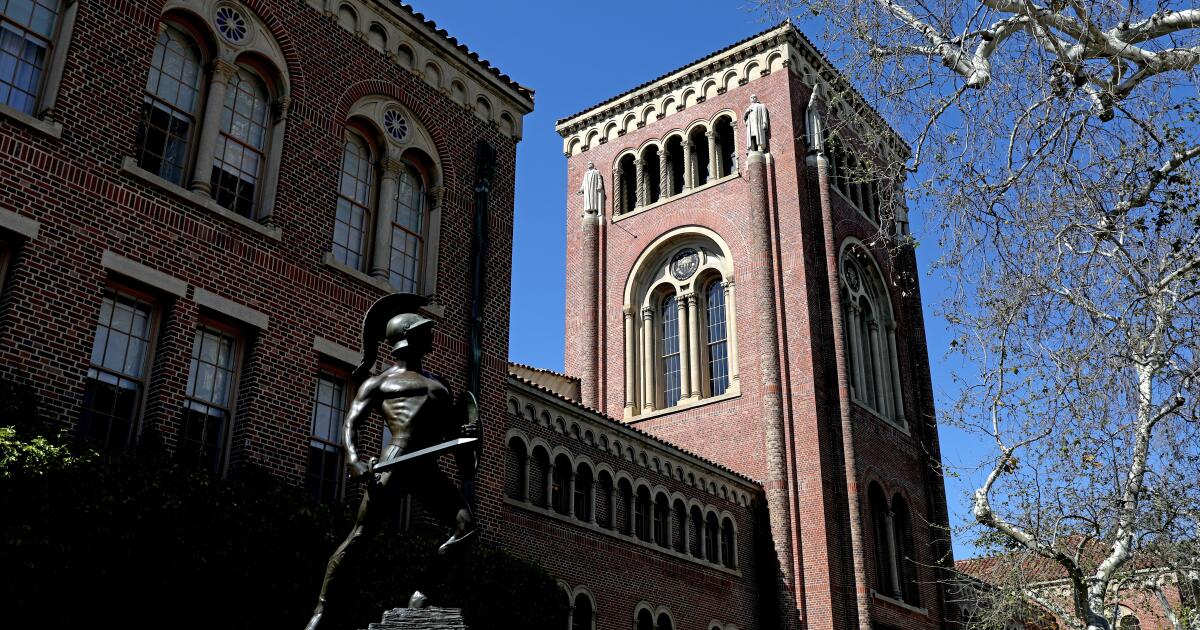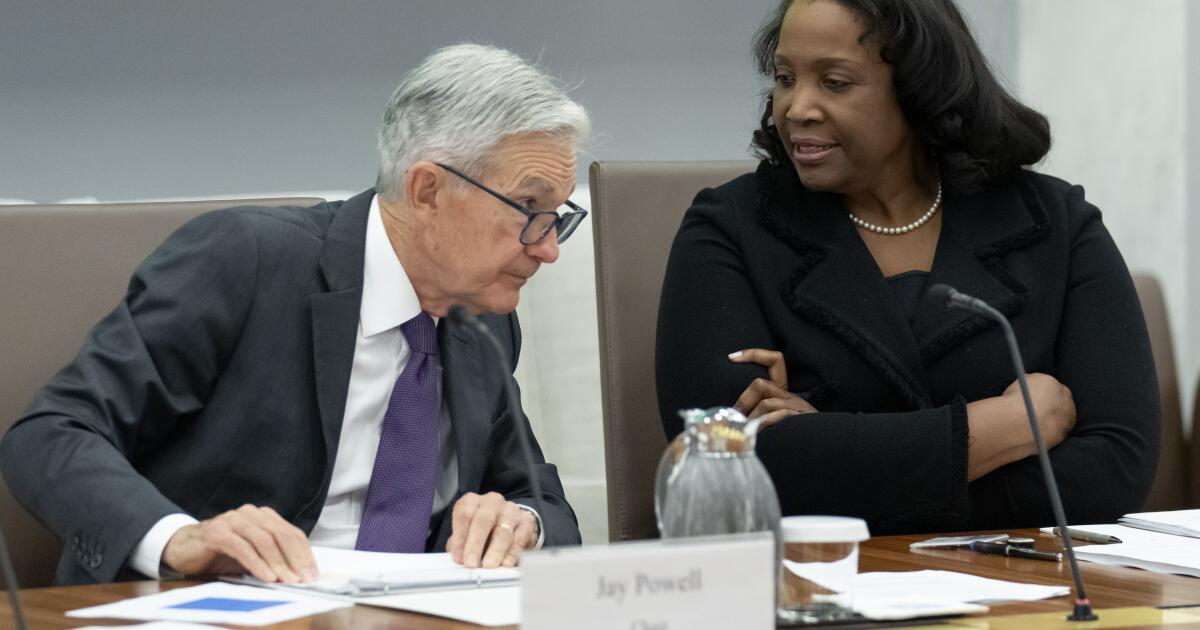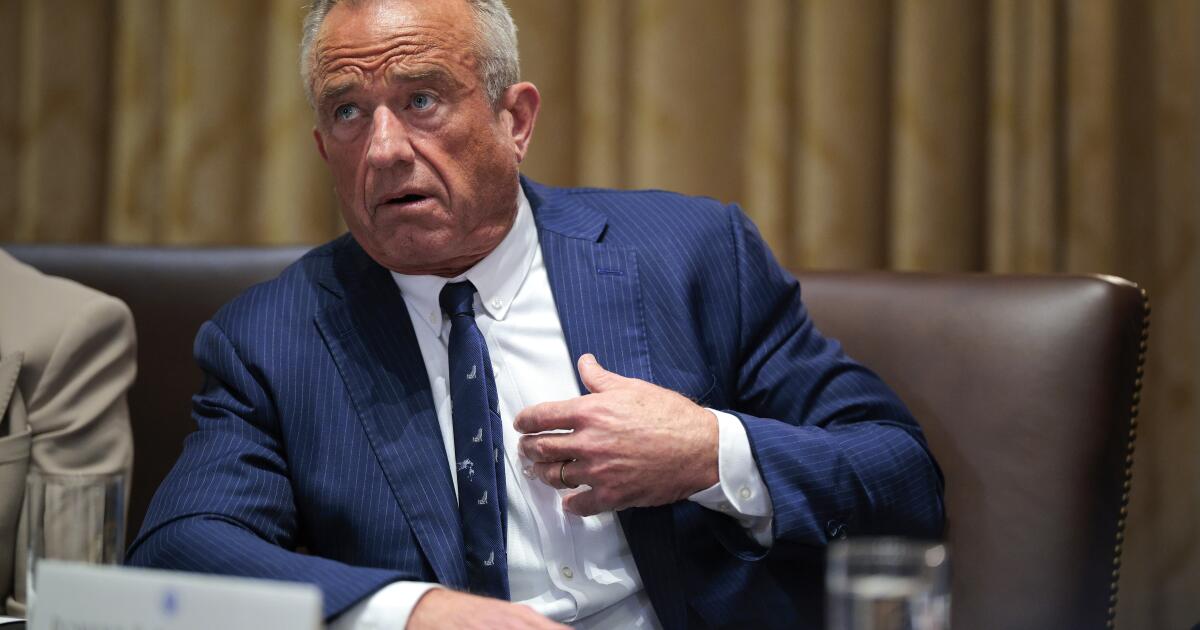
Gov. Gavin Newsom on Thursday threatened to cut “billions” in state funding, including to USC, from any California campus that signs a Trump administration compact and agrees to sweeping and largely conservative campus policies in exchange for priority access to federal funding.
“If any California University signs this radical agreement, they’ll lose billions in state funding — including Cal Grants — instantly,” Newsom said. “California will not bankroll schools that sell out their students, professors, researchers, and surrender academic freedom.”
The bold statement came less than a day after the the White House asked the University of Southern California and eight other major universities throughout the country to shift to the right and agree to Trump’s views on gender identity, admissions, diversity and free speech among other areas — in exchange for more favorable access to federal research grants and additional funding.
Universities were asked to sign a “Compact for Academic Excellence in Higher Education” committing them to adopt the White House’s conservative vision for America’s campuses. The letter, sent out Wednesday, also suggests colleges should align with Trump’s views on student discipline, college affordability and the importance of hard sciences over liberal arts.
The request represents the latest tactic by the Trump administration to aggressively reshape universities — which he says are bastions of liberalism that are intolerant of Republicans — by leveraging federal funding to force campuses adhere to his conservative ideals.
The compact would also severely restrict international student enrollment to 15% of a college’s undergraduate student body and no more than 5% could come from a single country, a provision that would hit hard at USC, where 26% of the fall 2025 freshman class is international. More than half of those students hailing from either China or India.
Full-fee tuition from international students is a major source of revenue at USC, which has undertaken hundreds of layoffs this year amid budget troubles.
In a statement released before the Newsom announcement, USC said only that it was “reviewing the administration’s letter.” Officials did not immediately respond to a renewed request for comment.
The proposal, which would change many policies at one of the nation’s largest and most prominent private universities, caught several USC deans and administrators off-guard after they learned of White House request from news reports, according to USC employees and staffers who were not authorized to speak publicly on the matter.
Parts of the compact are similar in language and ideology to a sweeping federal proposal sent in August to UCLA that offered to re-instate hundreds of millions of dollars in research grants to the campus if the University of California agreed to federal demands and pay a $1.2-billion fine for how UCLA responded to alleged antisemitism on campus.
But the White House letter to USC and other campuses, including the University of Arizona, takes a different approach than the punitive actions against UCLA and other elite universities. Instead of offering to restore suspended government funding in exchange for campus policy overhauls, the government says it will dole out new money and give preference to the universities over others that do not agree to the terms.
Signing on would give universities priority access to some federal grants, but government money would not be limited solely to those schools, according to a White House official. Colleges that agree would also have priority access to White House events and discussions with officials.
The compact asks universities to accept the government’s definition of gender and apply it to campus bathrooms, locker rooms and women’s sports teams. It says colleges would stop considering race, gender and a wide range of other student demographics in the admissions process and to require undergraduate applicants to take the SAT or ACT.
USC, since a 2023 Supreme Court decision, is not allowed to consider race in admissions, and public California universities have been barred from doing so under state law since 1997. USC is “test optional” in its application process and students can decide whether or not to submit scores.
“‘It’s upsetting as a faculty member and a teacher and a product of higher education to see this administration trying to dismantle academic freedom and free speech in such a systematic way,” said Devin Griffiths, a USC associate professor of English and comparative literature. Griffiths said he would “push hard for our university to forcefully reject this and I would hope that there is space here for the universities that are targeted by this order to take a collective stand.”
Sanjay Madhav, an associate professor of practice at the USC Viterbi engineering school, said the compact appeared to be “blatantly in violation of the First Amendment since it states that the federal government is going to give preference to universities that align with its political views.”
In an email sent to colleagues Thursday and shared with The Times, USC Cinematic Arts school professor Howard Rodman summed up his position: “It is abundantly clear that either the universities stand together and refuse the gift of ‘prioritized grants,’ or higher education in the United States will become a wholly owned subsidiary of MAGA, LLC…. I would urge USC to remember that when you lie down with dogs, you get up with fleas.”
The 10-page proposed agreement was sent Wednesday to public and private universities, including some of the most selective institutions in the county. In addition to USC and the University of Arizona, it went to Vanderbilt, the University of Pennsylvania, Dartmouth College, the Massachusetts Institute of Technology, the University of Texas, Brown University and the University of Virginia.
It was not clear how these schools were selected or why, and whether similar offers might go out to other colleges.
Some of the schools are in red states that have been more friendly to Trump’s higher education priorities. Texas officials endorsed the compact.
Leaders of the Texas system were “honored” that the Austin campus was chosen to be a part of the compact and its “potential funding advantages,” according to a statement from Kevin Eltife, chair of the Board of Regents. “Today we welcome the new opportunity presented to us and we look forward to working with the Trump Administration on it,” he said.
USC has largely maintained a low-profile stance and has avoided making public statements on the president’s higher education agenda.
In April, when more than 220 university leaders signed onto an American Assn. of Colleges and Universities statement against “undue government intrusion in the lives of those who learn, live, and work on our campuses,” former USC President Carol Folt said publicly that she declined to sign.
In February, after the Department of Education released guidance opposing race and ethnicity-themed scholarships, graduations and other programs, USC closed down its diversity offices and re-named related websites while many other California universities refused to comply.
USC also faces a difficult financial outlook. In a July campus letter, interim president Beong-Soo Kim said that a budget deficit surpassing $200 million coupled with federal funding challenges would require layoffs and other cost-cutting measures. More than 600 layoffs have hit the campus since then, according to Morning, Trojan, an independent outlet that monitors USC news.
Representatives from the University of Arizona other colleges did not respond to requests for comment.
The administration has used its control of federal funding as leverage at several high-profile institutions, cutting off research money at UCLA, Harvard and Columbia as it has sought changes to the schools’ governance and policies.
University of California leaders are negotiating with the Department of Justice over federal demands, although the urgency for talks has slowed after a federal judge ordered nearly all of the $584 million in suspended health and science research grants at the Los Angeles campus to be restored. Trump said this week that he was “close to finalizing” a deal with Harvard that would include it paying $500 million for a “a giant trade school” run by the university.
Schools that sign on would have to cap tuition for U.S. students for five years and the wealthiest campuses would not charge tuition at all for students pursuing “hard science programs.”
On free speech, schools would have to commit to promoting a wide range of views on campus. That includes “transforming or abolishing institutional units that purposefully punish, belittle, and even spark violence against conservative ideas,” according to the compact.
Each school would have to commission an annual poll of students and faculty to evaluate the campuses’ adherence to the pact. The terms would be enforced by the Justice Department, with violators losing access to the compact’s benefits for no less than a year. Following violations bump the penalty to two years.
“Institutions of higher education are free to develop models and values other than those below,” the compact said, “if the institution elects to forego federal benefits.”
Kaleem and Gutierrez are Times staff writers. Madhani in reports for the Associated press in Washington. Collin Binkley of the Associated Press also contributed to this story.



